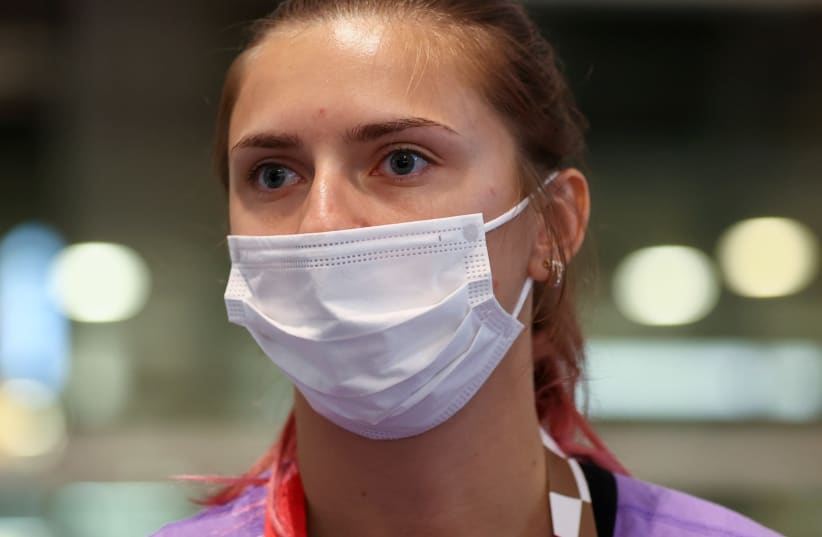A Belarusian athlete who refused to board a flight after she said she was taken to the airport by her team against her will was "safe and secure" in Tokyo, the International Olympic Committee said on Monday.
Krystsina Tsimanouskaya, 24, spent the night in an airport hotel after she sought protection from Japanese police at Haneda airport late on Sunday, IOC spokesperson Mark Adams said at a media conference. A number of agencies were in contact with the sprinter, including the United Nations High Commissioner for Refugees, he added.
Tsimanouskaya, who was due to race in the 200 meter heats at Olympic Stadium on Monday, had her Games cut short when she said she was taken to the airport to board a Turkish Airlines flight.
She told a Reuters reporter via Telegram that the Belarusian head coach had turned up at her room on Sunday at the athletes village and told her she had to leave.
"The head coach came over to me and said there had been an order from above to remove me," she wrote in the message. "At 5 (pm) they came my room and told me to pack and they took me to the airport."
But she refused to board the flight, telling Reuters: "I will not return to Belarus."
The Belarusian Olympic Committee said in a statement coaches had decided to withdraw Tsimanouskaya from the Games on doctors' advice about her "emotional, psychological state."
Belarus athletics head coach Yuri Moisevich told state television he "could see there was something wrong with her... She either secluded herself or didn’t want to talk."
Adams said the IOC would continue conversations with Tsimanouskaya on Monday and the Olympics governing body had asked for a full report from the Belarus' Olympic committee.
The incident on Sunday, first reported by Reuters, highlighted discord in Belarus, a former Soviet state that is run with a tight grip by President Alexander Lukashenko.
In response to a number of questions by journalists about what the IOC would do to ensure other athletes in the village were protected, the IOC spokesperson said they were still collecting details about what exactly occurred.
He said the IOC had taken a number of actions against Belarus' Olympic Committee in the run up to the Games following nationwide protests in the country.
